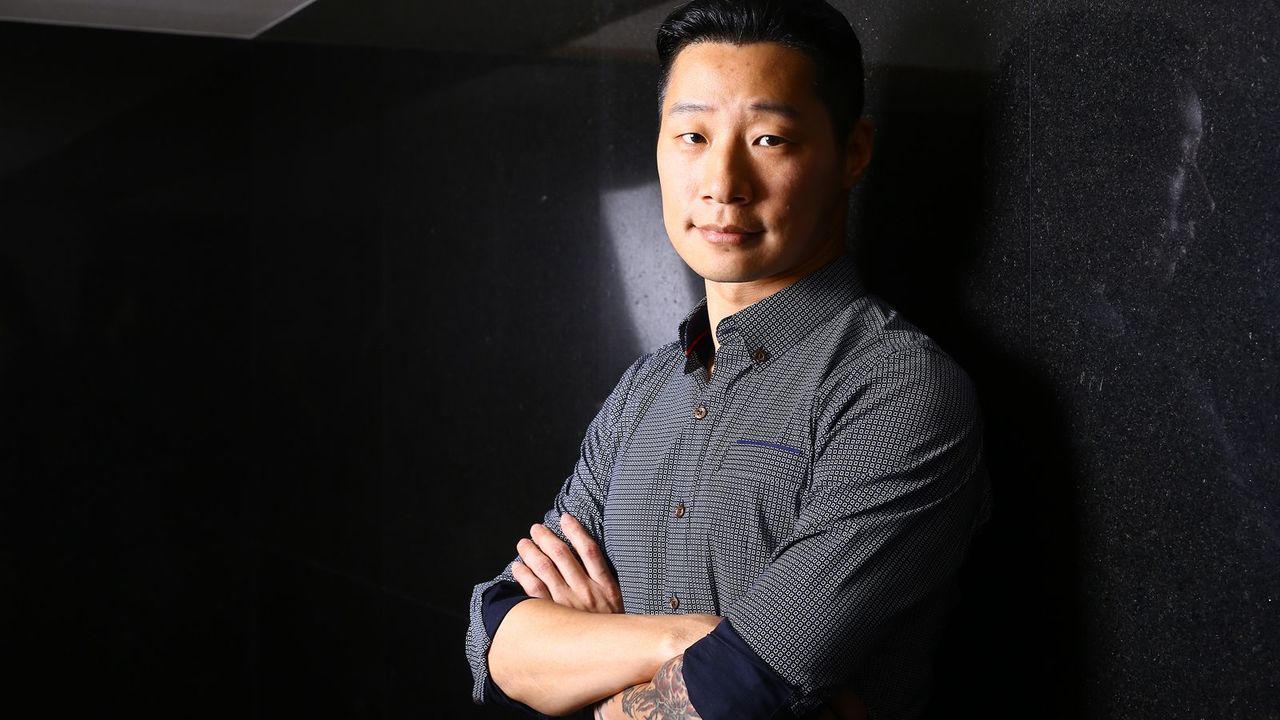
Tsai Ing-wen, chairperson of Taiwan's Democratic Progressive Party (DPP), achieved a landslide victory in the January general election, effecting the Taiwanese government's third-ever transition of political power. The driving force behind this achievement: the younger generation, who consider Taiwanese independence to be a self-evident truth and who support the New Power Party (NPP), which emerged from the 2014 Sunflower Student Movement.
Prior to the election, the NPP forged a cooperative partnership with the DPP in order to bring Tsai to power as the new president. Furthermore, the NPP won five seats in the Legislative Yuan (Taiwanese parliament), making them the third-largest party represented there.
The NPP, the center of these turbulent changes in the government, is represented by an unexpected figure: 40-year-old Freddy Lim. Before making his transition to politics, Lim was (and he still is) the lead vocalist of Chthonic, a well-known Taiwanese heavy metal band adored by fans in Europe, North America, Japan, and beyond.
Adopting central themes rooted in native mythology, Lim and his fellow band members strive to express the outrage of the Taiwanese people through music. As a politician, he utilizes his wit and eloquence in the Legislative Yuan to push for Taiwanese independence, improved employment conditions, and legislative reform to facilitate easier holding of referendums among other changes, garnering increasing support from Taiwanese youth nationwide as he goes.
Heavy metal to politics: an unexpected transition
Your transition from heavy metal musician to politician is something rarely seen in any country. What prompted you to make this move?
As the new party was taking shape in late 2014, I met a lot of people from the younger generations who were experiencing human rights problems at school, work, and elsewhere, so I decided to take action and personally do what I could to help create new foundations for change. I plan to serve only two terms in the Legislative Yuan, after which I will ask someone younger to take over. Plus, if I don't get back to doing music full time , my bandmates will be pissed off.
Taiwanese people are actually very progressive thinkers. For example, when I decided to run for my parliamentary seat, my electoral district was the area of Taipei with the highest elderly population. Nobody imagined those voters would elect a long-haired, tattoo-covered candidate like me, but here I am. Surveys of the Taiwanese populace have also shown that the majority are in favor of same-sex marriage. However, the bureaucracy are doing their best to put a stop to change, meaning I must focus my efforts first and foremost on government reform.
Why do you think interest in politics among young people is on the rise in Taiwan?
Many social and political movements around the world, in Taiwan and other countries, are led by young people. Of course it would be nice if today's youth were able to follow the path laid out for them by their parents' and preceding generations, but the truth is many young people are having trouble finding work even after they graduate from school. Unless they forge their own new path tailored to their specific needs, they will be perpetually stuck in this dire situation with no way out. That's why so many of the younger generations around the globe are pouring their energy into social and political reform movements.
In Taiwan's case, an additional factor comes into play. When our youth think back to their early childhoods, they have memories of living in a democratic and free Taiwan. However, the previous administration, under President Ma Ying-jeou, exhibited a strong pro-PRC leaning over its eight-year reign, going so far as to claim that Taiwan is part of China. That was something that today's young people, who strongly support Taiwanese independence, could not stand.
The Chinese government's influence on journalism, creative and artistic fields, and other areas has also led to a loss of freedom. Musicians have been led to believe implied that, if they want to make any money, they should create music that is more “reasonable and well behaved.” This has cast an oppressive shadow over the creative world. Some musicians have been unable to sell their albums or even perform on stage.
The cost of economic growth
The previous administration often stated that good relations with China lead to economic growth. What are your thoughts on this?
Those relations with China caused capital to flow out to the mainland rather than staying in Taiwan. Unemployment has remained high in Taiwan over the last several years, and even if one has a job, their salary will never rise. If high economic gain is to come at the cost of democracy, freedom, and human rights, I think that a lot of us are willing to put up with less economic growth in order to retain our liberties. The sad reality is that, in addition to experiencing underwhelming economic success, we are also losing our freedom. It's a real mess.
How are the demands of young people in the NPP and elsewhere being perceived by Taiwanese financial circles?
Since our founding, the NPP has received no support from major corporations; rather, our support comes from small to medium companies, probably because these smaller companies have not profited from closer ties with China.
The people of Taiwan and citizens of Asia as a whole seem far too accustomed to being exploited. In contrast, the European musicians, businesspeople, and others involved in the music industry whom we have met over the years are able to take several months of vacation every year and really enjoy life to the fullest. Even with such comfortable lifestyles, their local economies have remained healthy.
Taiwanese people need to abandon their long-standing Asian-style approach to work and search for better ways of working that will preserve corporate competitive strength while reducing the misery of young employees. Sure, it's true that giving up cheap labor will raise costs and make companies less competitive to a certain extent. However, many people buy Taiwanese products merely because they are cheap, which is something I hope companies will put a stop to—we ought to be succeeding based on brand strength, added value, and other such merits.



